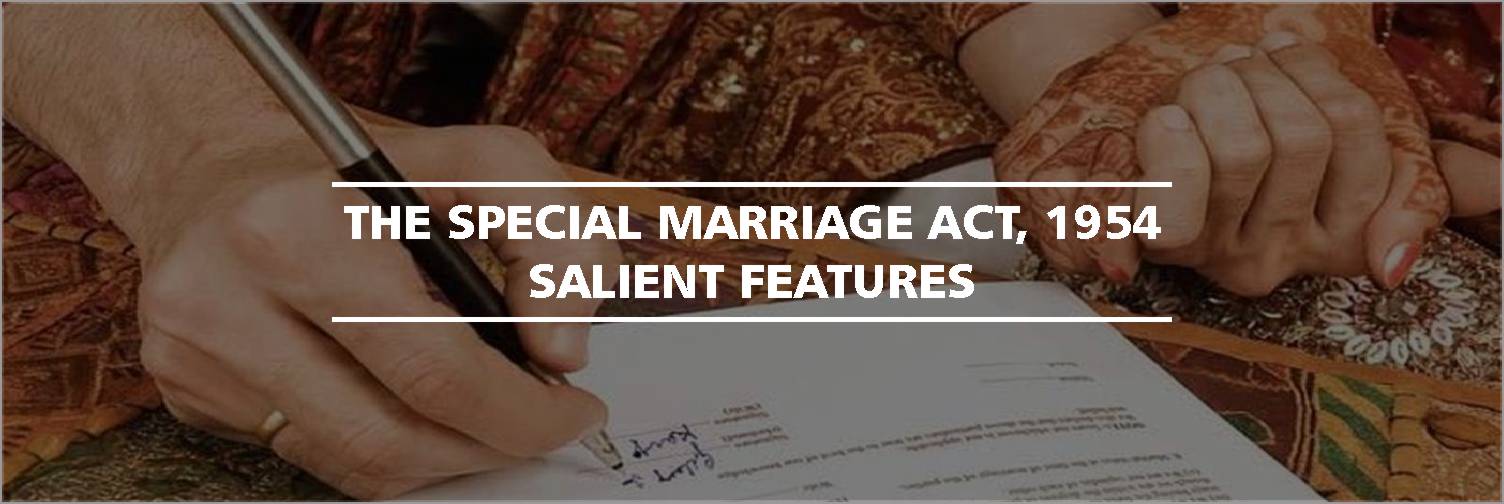There have been several situations in India when a family of non-Indian nationality petitioned the court for custody of a kid. In India, custody of a child is decided by the court following a separation or divorce, with the kid’s welfare and health in mind. We can understand how hard it might be for you to stay away from your child. Therefore, we are here with this detailed article on how to get child custody in Dehradun.
Merely knowing about the process is not going to help you get custody of your child. You also need to find a good and experienced child custody lawyer in Dehradun too. Other significant variables for a child’s well-being include ethical upbringing, safety, good education, and economic well-being. The ‘Guardian and Ward Act, 1890‘ governs instances involving children in care. This Act is a secular statute that applies if the separating couple is of different religions or is a foreigner.
Other religious enactments that govern custody issues from a specific faith cannot be applied to instances involving the custody of a child of foreign nationality. This article outlines a study of the jurisdiction of Indian Courts in the situation of custody of a foreign national kid. This article focuses on the issue of implementing a custody decision issued by a foreign court. So, if you want to contest a child custody matter in Dehradun under the above-mentioned circumstances, scroll down to read more on the topic.
Important Judgements for a Child Custody Matter:
Here are some important judgments that might help you know your child custody rights and also how to get child custody in Dehradun.
1. Arvind Gopal Krishna Chawda versus The State Of Telangana:
Petitioner sought directions asking the 6th respondent to give him custody of the young children so that he can return them to the jurisdiction of the American Court. A further order is requested from the 6th respondent to transfer to the petitioner the relevant documents in her care, such as the children’s passports and other travel documents, in order to permit their return to the United States.
The American Court issued an order on October 31, 2013, awarding the petitioner sole legal and residential custody of the children. Following that, on 23.01.2014, the American Court issued a divorce judgement and gave the petitioner exclusive legal and residential custody of the young children in accordance with its earlier ruling of 31.10.2013.
The Supreme Court stated the following principles regarding custody of minor children:
a. The modern theory of conflict of laws recognises and prefers the jurisdiction of the State that has the most intimate contact with the issues arising in the case;
b. Though the Hindu Minority and Guardianship Act, 1956, establishes the father as the natural guardian of a minor son, it cannot supersede the paramount consideration of what is conducive to the welfare of the child.
c. The domestic court would prioritise the child’s wellbeing, and the order of a foreign court would be considered solely as one of several factors.
On an application seeking a writ of habeas corpus for custody of minor children, the principal consideration for the court is to ascertain whether the custody of the children is unlawful and whether the welfare of the children required that the present custody should be changed so that the children should be left in the care and custody of somebody else. The principle of comity of courts normally ensures that foreign judgments and orders are unconditionally conclusive of the matter in controversy; however, the interest and welfare of the minor being paramount, a competent court in this country would be entitled and indeed duty-bound to examine the matter independently, using the foreign judgement, if any, only as an input for its final adjudication.
Judgement: Despite the fact that the first interlocutory order of custody was issued by the American Court on 20.03.2013, three days after the children left American soil, the petitioner’s delay in seeking implementation of that order, as well as the later final order of custody dated 23.01.2014, has resulted in the children acclimating to Indian life and conditions. The son has had no experience with American life since he was sent to India when he was less than two years old. Kashvi, the daughter, was just over seven years of age when she came to India and has now adjusted comfortably to her life here and is happy and secure with her school, friends and family in India.
2. Smt. Surinder Kaur Sandhu V/s. Harbax Singh Sandhu
The father transported the kid, a British citizen, to India without the mother’s knowledge. The mother got an order from the foreign court making the kid a ward of the stated court the same day. The order required the father to give the mother custody of the minor kid. The mother petitioned the Supreme Court after the Punjab and Haryana High Court dismissed her writ petition for production and custody of her minor son. The Supreme Court remarked that the operation or formation of fortunate circumstances, such as where the child whose custody is in dispute is brought or, for the time being, where the kid is brought, did not draw jurisdiction.
The Supreme Court stated the following principles on minor child custody:
a. The current view of the conflict of laws acknowledges and prefers the jurisdiction of the State which has the most personal touch with the problems emerging in the case;
b. Although the Hindu Minority and Guardianship Act of 1956 designates the father as the natural guardian of a minor son, this cannot take precedence over what is best for the child’s welfare.
c. The domestic court would prioritise the child’s wellbeing, and the order of a foreign court would be considered solely as one of several factors.
Taking into account the fact that the marital residence was in England, creating adequate contact or links with that State, the Supreme Court ruled that it would be equitable and reasonable for the court of that State to take jurisdiction to execute the spouses’ obligations incurred there. As a result, custody of the kid was instructed to be given to the mother.
3. Mrs. Elizabeth Dinshaw V/s. Arvand M.Dinshaw:
The Supreme Court stated that a parent who wrongfully removes children from the country should not be allowed to profit from such wrongdoing, and that the court should consider the order of the foreign court in relation to the child’s custody unless satisfied beyond a reasonable doubt that doing so would cause serious harm to the child. The Supreme Court also stated that, independent of the preceding consideration, whenever a question of custody of a minor child arises before a court, the matter is to be decided not on the basis of the parties’ legal rights, but on the sole and predominant criterion of what would best serve the minor’s interest and welfare.
4. Sarita Sharma V/s. Sushil Sharma:
In this case, a District Court in Texas, USA, issued an order for the care and custody of a couple of Indian origin children. The children, on the other hand, were both American citizens. The children were awarded to the father, Sushil Sharma, with limited visiting privileges granted to the mother, Sarita Sharma. Sarita Sharma, on the other hand, took the children to India without alerting the Texas Court. Sushil Sharma then acquired a divorce judgement from a foreign court, as well as an order granting him exclusive custody of the children. He subsequently applied to the Delhi High Court for a writ of habeas corpus to get custody of the children.
The writ petition was granted, and the children’s passports were instructed to be handed over to the father, who was given permission to take them back to the United States without restriction. Sarita Sharma, who was dissatisfied with the outcome, filed an appeal with the Supreme Court. On the merits, the Supreme Court ruled that the Delhi High Court erred in granting the writ petition and ordering the mother to hand up custody of the children to the father in order for him to transfer them to the United States.
What was in the best interests of the children required a comprehensive investigation, and the Supreme Court ruled that the High Court should have instructed the father to commence suitable proceedings in which such an investigation could be performed. The Supreme Court reasoned that, in most cases, the mother would be more prepared to care for and raise a daughter than the father.
5. V. Ravi Chandran (Dr.) V/s. Union of India:
In this instance, the mother unlawfully withdrew her young kid, a foreign national, from the United States in defiance of a custody order issued by the Family Court of the State of New York. This custody order was granted with her permission and the permission of her father, who was also a foreign national. The father sought a modification of the custody order and was given temporary exclusive legal and physical custody of the minor kid, with the mother ordered to immediately turn over the minor child and his passport to the father. Her custody of the child has been revoked.
The foreign court also ordered that the child’s custody be decided by the jurisdictional family court in the United States. Based on these circumstances, the father petitioned the Supreme Court for a writ of habeas corpus for the child’s production and custody. After reviewing a large number of decisions, the Supreme Court concluded that the comity of nations does not require a court to blindly follow an order made by a foreign court, and that only due weight should be given to the views formed by the foreign country’s court, of which the child was a national.
The Supreme Court remarked that the comity of courts requires simply the serious study of a foreign court order, and that the weight and persuasive impact of a foreign decision would ultimately depend on the facts and circumstances of the case. The Supreme Court reiterated that the welfare of the child is the first and foremost consideration, regardless of the orders passed by the foreign court, and that the domestic court was bound to consider what was in the best interest of the child, and that the order of the foreign court would be only one of the circumstances to be considered, though it is not conclusive one way or the other.
The Supreme Court warned that one of the reasons that a domestic court should keep in mind is that there should be no risk to the child’s moral or physical health in returning him or her to the jurisdiction of the foreign nation. The Supreme Court declared that while deciding whether or not to remove a child to the jurisdiction of a foreign court, the domestic court may undertake either a short or a comprehensive examination. On the facts, it was determined that an extensive investigation was not required in that case because there was nothing on record that even remotely suggested that the child’s return to the native country would be harmful.
Furthermore, despite the fact that the boy had been in India for nearly two years after his mother withdrew him from the United States, the Supreme Court noted that the plea for the child’s return was brought quickly following his departure. The Supreme Court also stated that one of the factors to be considered when exercising summary jurisdiction in the best interests of the child is that the application for custody/return of the child should be made as soon as possible after the child is removed, as delay may result in the child developing roots in the country to which he has been removed. However, based on the circumstances, the Supreme Court determined that he had been transferred from school to school, and so the aforementioned occurrence did not occur.
6. Shilpa Aggarwal V/s. Aviral Mittal:
In this case, the parents were both British citizens of Indian origin. They had a small child who was a foreign national as well. They experienced marital problems, and as a result, the mother travelled to India with the small child and refused to return. The father then filed a case in the United Kingdom’s High Court of Justice, Family Division, and the foreign court ordered the mother to restore the young kid to its jurisdiction. Soon thereafter, the father filed a writ suit in the Delhi High Court seeking custody of the kid.
The Delhi High Court observed in its decision reported in AVIRAL MITTAL V/s. STATE that the child’s best interest would always be to have the benefit of both parents’ company, but where such an ideal situation is not possible, the question of who is in a better position to look after the child arises. Observing that a female child, as noted in Sarita Sharma and the previous Delhi High Court ruling in Paul Mohimder Gahun V/s. State of NCT of Delhi, would be better cared for by the mother, the Delhi High Court warned that this would rely on the behaviour of the parents once again.
The Delhi High Court effectively dismissed the writ petition and granted the mother time to take the child to the United Kingdom on her own and participate in the proceedings before the foreign court, failing which the child was to be handed over to the father to be taken to the United Kingdom as a measure of interim custody, leaving it up to the foreign court to determine which parent would be best suited to have custody of the child. As a result, the mother filed an appeal with the Supreme Court.
The Supreme Court remarked that there are two opposing legal principles, namely comity of courts and welfare of the child, and that in situations of custody of minor children, the single and primary factor is the minor child’s interest and welfare. It was also pointed out that the domestic court could not be wholly led by the fact that one of the parents disobeyed a foreign court’s ruling. Based on these principles, the Supreme Court agreed with the High Court that the foreign court had not instructed that custody of the kid be given to the father, but that the child be returned to its jurisdiction so that it may evaluate who would be best suited to have custody of the child.
7. Ruchi Majoo V/s. Sanjeev Majoo:
Due to disagreements with her husband, the woman travelled to India with her child. The entire family was made up of foreign nationals. After the mother arrived in India with the kid, the father filed for divorce in the Superior Court of California, County of Ventura in the United States, and got a protective custody warrant order requiring the mother to appear before the foreign court. She, on the other hand, did not comply and instead filed a complaint with the Delhi Guardian Court. The Guardian Court issued an ex parte ad interim order stating that the father should not interfere with the mother’s custody of her young kid.
Dissatisfied with the order, the father challenged it in the Delhi High Court under Article 227 of the Constitution, and won on the grounds that the Guardian Court lacked jurisdiction to hear the case because the child did not ordinarily reside in Delhi. The Delhi High Court went on to say that because the kid and the parents were both American citizens, the custody of the child had to be decided by a foreign court. As a result, the mother filed a complaint with the Supreme Court.
The Supreme Court distilled the following principles:
a. The welfare of the child is of paramount consideration, and simply because a foreign court took a particular view concerning the welfare of the child, it was not enough for the courts in this country to shut out an independent consideration of the matter, as the principle of comity of courts simply demanded consideration of a foreign court’s order, not necessarily its enforcement.
b. The time difference between moving the domestic court for repatriation is one of the criteria to examine when deciding whether a domestic court should undertake a quick inquiry or an extensive inquiry for repatriating the kid to the jurisdiction of the foreign court. The larger the time lapse, the less likely the domestic courts are to conduct a summary investigation.
c. One of the criteria to be considered for the repatriation of a child to the jurisdiction of a foreign court is a foreign court order. However, this would not take precedence over the child’s welfare. As a result, even if the removal of the kid from the jurisdiction of the foreign court violates the foreign court’s ruling, assigning custody of the child to the parent who sought the foreign court would not be justified if it was not in the best interests of the child.
d. When a kid is taken from the jurisdiction of a foreign court in violation of an order made by that foreign court where the parties had established their marital home, the domestic court must decide whether to undertake a comprehensive or summary inquiry into the child’s custody. If an extensive investigation is to be conducted, the domestic court may attach due weight to the order of the foreign court, based on the facts and circumstances under which such an order was issued.
e. Depending on the facts of the case, a constitutional court exercising summary jurisdiction for the issuance of a writ of habeas corpus may conduct an elaborate inquiry into the welfare of the child whose custody is claimed, and a Guardian Court (if it has jurisdiction) may conduct a summary inquiry into the welfare of the child.
f. Because the child’s best interests and welfare are important, a domestic court has the right, and indeed the responsibility, to investigate the situation independently, using the foreign ruling, if any, solely as an input for its ultimate decision.
Based on the facts, the Supreme Court determined that the minor’s repatriation to the United States did not appear to be an acceptable alternative worthy of consideration at the time, and his custody was instructed to be continued with his mother. The Supreme Court observed that the comity of courts principle normally ensures that foreign judgments and orders are unconditionally conclusive of the matter in controversy, but interest and welfare of the minor being paramount, a competent court in this country would be entitled and indeed duty-bound to examine the matter independently, taking the foreign judgement, if any, only as an input for its final adjudication. The Supreme Court stated that the role of a court exercising parens patriae jurisdiction in cases involving minor children would be to prioritise the kid’s wellbeing. The court would therefore approach the issue of the validity and enforcement of a foreign decree or order with caution, and simply because a foreign court has taken a particular view on any aspect concerning the welfare of the minor would not suffice to bar independent consideration of the matter in this country.
The Court was of the opinion that objectivity, rather than complete surrender, is the mantra in such cases, but that does not mean that the order issued by a foreign court is not a factor to be considered, though it is one thing to consider the foreign judgement to be conclusive and quite another to treat it as a factor or consideration that would go into the making of a final decision. The Court further stated that, while habeas corpus hearings are brief in nature, nothing stops the High Court from conducting a thorough investigation in circumstances where the welfare of a minor is at stake, which is the Court’s primary concern when exercising parens patriae jurisdiction.
The High Court was thus held to have the power, in the exercise of its extraordinary jurisdiction, to determine the validity of such custody in cases falling within its jurisdiction and to issue orders as to the custody of the minor depending on how the Court views the rival claims, if any, to such custody. On the basis of the comity of courts concept simplicitor, the Supreme Court rejected the practise of repatriating a minor child to a foreign nation.
8. Arathi Bandi V/s. Bandi Jagadrakshaka Rao:
The mother and father were both regular residents of the United States, and they had a small kid. Their marital discord had already shown itself as a lis before a Seattle court in the United States. The mother transported the infant to India in defiance of the foreign court’s injunction. Because she did not surrender the kid to the jurisdiction of the foreign court, the foreign court issued bailable orders for her arrest. The father filed a petition of habeas corpus in this Court seeking production and custody of the kid so that he might return to the United States.
This Court issued a number of orders in the case, but the mother failed to comply with some of them, resulting in this Court issuing non-bailable warrants for her arrest. As a result, the mother filed a complaint with the Supreme Court. Observing that the mother had travelled to India in defiance of the foreign court’s decision and had also violated the High Court’s directions, the Supreme Court ruled that no redress could be awarded to her.
The Supreme Court went on to state the following principles:
a. It is the obligation of all courts in all countries to ensure that a parent who does wrong by removing a kid from the country does not benefit from his or her crime.
b. In a specific case involving child custody, it may be required to conduct a comprehensive investigation into the child’s welfare or a short inquiry without addressing the merits of the dispute pertaining to the child’s care on the grounds that such an order is in the best interests of the child.
c. Simply because a kid has been brought to India from another country does not indicate that the custody question should be decided by a domestic court. Returning the kid to the jurisdiction of the foreign court from which he or she was transferred would be consistent with the concept of comity of courts.
9. Padi Trigunsen Reddy & Ors. Versus Jyothi Reddy & Ors.:
The final concern should be — the welfare of the child alone, regardless of the kind of judgement, order, or decree issued by the appropriate Court in the United States. When children are living in the association of either parent in a country other than the country of their nationality, the Courts of such country of their residence have the jurisdiction to pass appropriate orders keeping in mind the best interests of the child, and while giving such preference to the welfare of the child, the aspect of enforceability of a judgement passed by a competent Court in a foreign country also fades or becomes ineffective. Nonetheless, the concept of comity cannot be ignored entirely, for the simple reason that a judgement passed by a competent Court of a nation in accordance with the law of that land cannot be slighted in any way, and such judgments must be accorded due regard by another country, but not at the expense of the child’s welfare.
The welfare of the child or children, as the case may be, cannot be sacrificed in order to enforce the ruling of a competent Court in a foreign nation. The rationale is simple: the children are not parties to their parents’ disagreements. It is not the children who sparked such disagreements, which eventually led to their parents’ alienation, nor are they parties to the lis before any court of law. Children, in our opinion, are a different class unto themselves, with full rights but no duties. The burden is on the parents.
Conclusion
Child custody matters are dealt with a lot of sensitivity in India. Despite there being specific laws concerning the same, the Court looks beyond the same and puts the welfare of the child as its topmost priority. Child custody matters in Dehradun can be contested with the help of seasoned lawyers who are well-versed in the technicalities involved in the whole process.
This article is written by Anjali Bisht. The author can be contacted via email at anjali@bnblegal.com.








